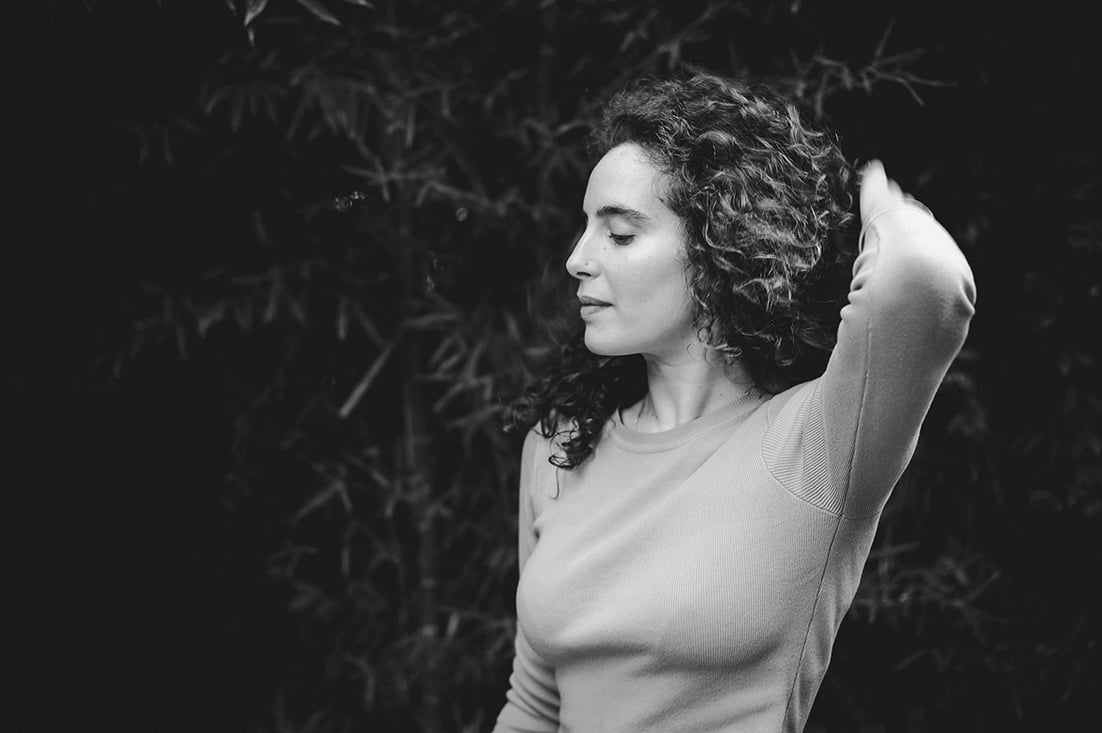Interview
In the lives of four generations of women, Lina Soualem creates a memory of Palestine
‘I wanted to tell the story of my Palestinian family because it is as if their lives are not as valuable as others. It is as if we have to prove that we are human, prove once again that our voices and our stories are worthy of being heard.’

A happy little girl is climbing a fig tree, playing with her grandmother, bathing with her mother in an enormous blue-water lake surrounded by hills full of olive trees. Her great-grandparents used to live in Tiberias, the capital of Galilee. In 1948 they were driven from their homes and forced to make a new life for themselves in another town, Deir Hanna.
That child’s name is Lina Soualem, and today she is 33 years old. She was born in Paris, to a Palestinian mother and an Algerian father, both actors. After studying journalism and political science, she decided to start telling her family’s stories through documentary filmmaking: “the best tool to express myself.”
After Their Algeria, dedicated to the stories of her paternal grandparents, she wrote and directed Bye Bye Tibèriade, shown at Venice Authors’ Days and on Sunday as part of the “Venice in Naples” festival.
“I wanted to give voice to the humanity of the Palestinians with a different representation than the usual. Unfortunately, the horror of these days will not stop,” Soualem said.
The film is a small masterpiece that weaves together the lives of four generations of women: mothers, teachers, artists, citizens of a people that has been erased from the maps of Europe. A political, profound and poetic portrait, fueled by intimate affections and memories, archival images, family photos, painful traces of an exile airbrushed out of history: the transmission of the memory of a community that has almost disappeared, layered identities that the artist has taken custody of in order to put the pieces back together.
We interviewed her shortly before her departure for Naples.
Why did you decide to tell the story of Tiberias?
It was a very complicated decision. The story of my Palestinian family is a silenced story, a very tragic one, which is not easy to talk about. When I showed my first work, I saw how much people identify with intimate stories, even when they’re set against a background they don’t know. This was something I wanted to continue doing. This time I decided to tell the story of the women of my family in Palestine: I am the one that brings them all together, from my great-grandmother to my grandmother to my mother. These are stories that have been forgotten, erased, marginalized. The Palestinians have been de-humanized, and I wanted to make sure they got their humanity back. I wanted to portray their strength, their faces, their emotions, their personal struggles. The further we get, the more I realize how vital it was to tell this story. Humanity is never something you can own; you can always be deprived of your rights – that’s a story that never ends.
The film contains never-before-seen images of Palestine – where did they come from? And how did you work with your mother?
I consulted various historical archives: public ones, private ones, foundations from all over the world. It took time to access them. One of the most important is the British archives dating back to the period of the British Mandate in Palestine before 1948. The UN also did a lot of filming during the period of the camps and refugees. I started about six years ago, rewatching family home movies. I noticed new things, such as the fact that my mom was uncomfortable on many occasions in her 30s, and the strong presence of women. Then I started off and began filming and editing. I worked with my screenwriting partner Nadine Naous, a Lebanese Palestinian writer and documentary filmmaker, and French Lebanese editor Gladys Joujou. Even though my mother is used to being on camera, it was difficult for her to go back in her memory to certain times in her life. And it was tough for me to ask her certain questions. We went through a long process to find a balance.
What are your thoughts during these horrible weeks?
I wanted to tell the story of my Palestinian family because it is as if their lives are not as valuable as others. It is as if we have to prove that we are human, prove once again that our voices and our stories are worthy of being heard. That’s why I find it very difficult to talk about what’s going on. As I go around to show the film, I see how eager people are to know our story: this is important, to continue to be present. Living in Europe, I feel very privileged, sometimes even guilty: being here and knowing that many people in Gaza don’t know if they will survive. I have so many friends who have lost loved ones. Of course, the October 7 attack was horrible, I know people who lost their lives. Now we are facing something that we cannot stop. This is the horror: this thing will not stop. We don’t know what will happen tomorrow, but our memories will continue to exist and that’s why we have to keep retelling them.
Originally published at https://ilmanifesto.it/lina-soualem-nelle-vite-di-quattro-generazioni-di-donne-la-memoria-della-palestina on 2023-10-29
